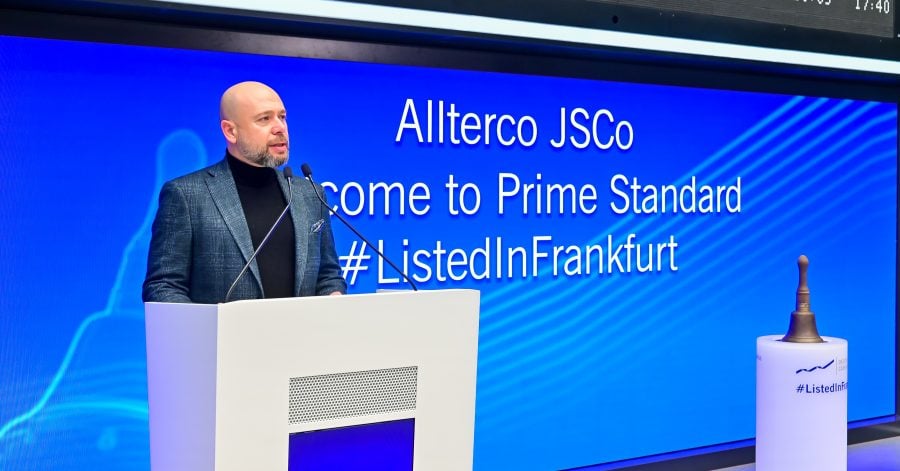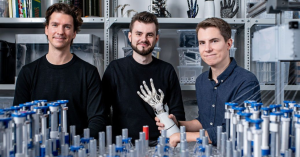Last month, Bulgarian IoT company Allterco became the first Bulgarian company whose shares are directly admitted to a foreign regulated market, as it got listed on the Frankfurt Stock Exchange.
Founded in 2010, Allterco develops innovative IoT solutions and products focused on two main product lines: smart GPS devices and smart watches for children under the MyKi brand and home automation solutions from Shelly.
In an interview for The Recursive, Allterco’s CEO Dimitar Dimitrov talks about what the listing means for the company and its further developments, their ambitions for the global market, but also its presence in the Western Balkans.
As a seasoned IT entrepreneur and innovator, Dimitrov also reflects on how Allterco is pushing the boundaries in smart home automation.
The Recursive: What are the company’s expectations and plans after the listing on the Frankfurt Stock Exchange?
Dimitar Dimitrov: Allterco’s business has always been developing internationally, with subsidiaries in the US, Asia, and most recently Germany, where we have a strong customer community. EU is Allterco’s largest market. The Frankfurt Stock Exchange listing positions Allterco as the international company that we are.
We truly believe that the extremely successful performance of Allterco in recent years will attract serious international investors.
But we also wanted to give an opportunity to smaller investors who are familiar with our products and services to invest in the company that is part of their everyday life.
What are the expansion plans of the company when it comes to the global market?
We are constantly expanding our reach to new markets and we currently have customers in over 100 countries around the world. However, we know well that there is always room for improvement in the performance in all these markets.
One of the reasons for starting the new company Allterco Europe, based in Germany, is to have a more focused approach, mainly to the DACH region, but also to other EU countries.
Our activities in the US lead to continuous improvement of the company’s performance there, which results in expanding our operational reach to the countries of South and Central America.
The expansion of the company inevitably will lead to the expansion of the product portfolio and team. We plan to increase not only the operational team but also to further develop our leading management positions.
This process is already underway, beginning with the appointment of a highly experienced CEO of Allterco Europe, followed by some other upcoming appointments. We are committed to making Allterco a successful international company.
When it comes to the IoT market, how does the company see the future development in the industry and its products and services?
One thing we learned from the very beginning is that the IoT sector is a highly dynamic industry in which innovation pushes business in new directions. What we have successfully done so far is always driving innovation in the segment in which we are present.
We proved this with the latest series of products part of our smart home brand Shelly, which we recently released – Shelly Pro and Shelly Plus. We wanted to challenge ourselves and push the boundaries of what is possible in smart home automation, successfully reaching a completely new level of innovation.
The ability to create custom scripts directly to Shelly’s devices, which customers control in their homes, finally removes any limitations of the imagination and brings them to the point of a fully customized smart home that runs based on their needs, preferences, and day to day schedules.
Regarding the smart home solutions that Allterco offers, how viable are such solutions for the countries in the SEE region and the Western Balkans?
The Western Balkans has always been a challenging market for the smart home industry. However, we are constantly seeing an increase in commercial distribution inquiries for that region.
Sadly, we are currently witnessing a rise in utility prices in this region. And this is always accelerating the pace of automation and the desire of consumers to understand where their costs mainly come from.
Receiving a bill for electricity, water, or heat at the end of the month does not provide good enough information. The biggest advantage of home automation is the real-time monitoring of power consumption, as well as the comfort of being able to control your home, even from a distance.
That way the customers can not only truly understand their utility costs, but also reduce them with smart control of their home that brings the unnecessary energy consumption to a minimum.







